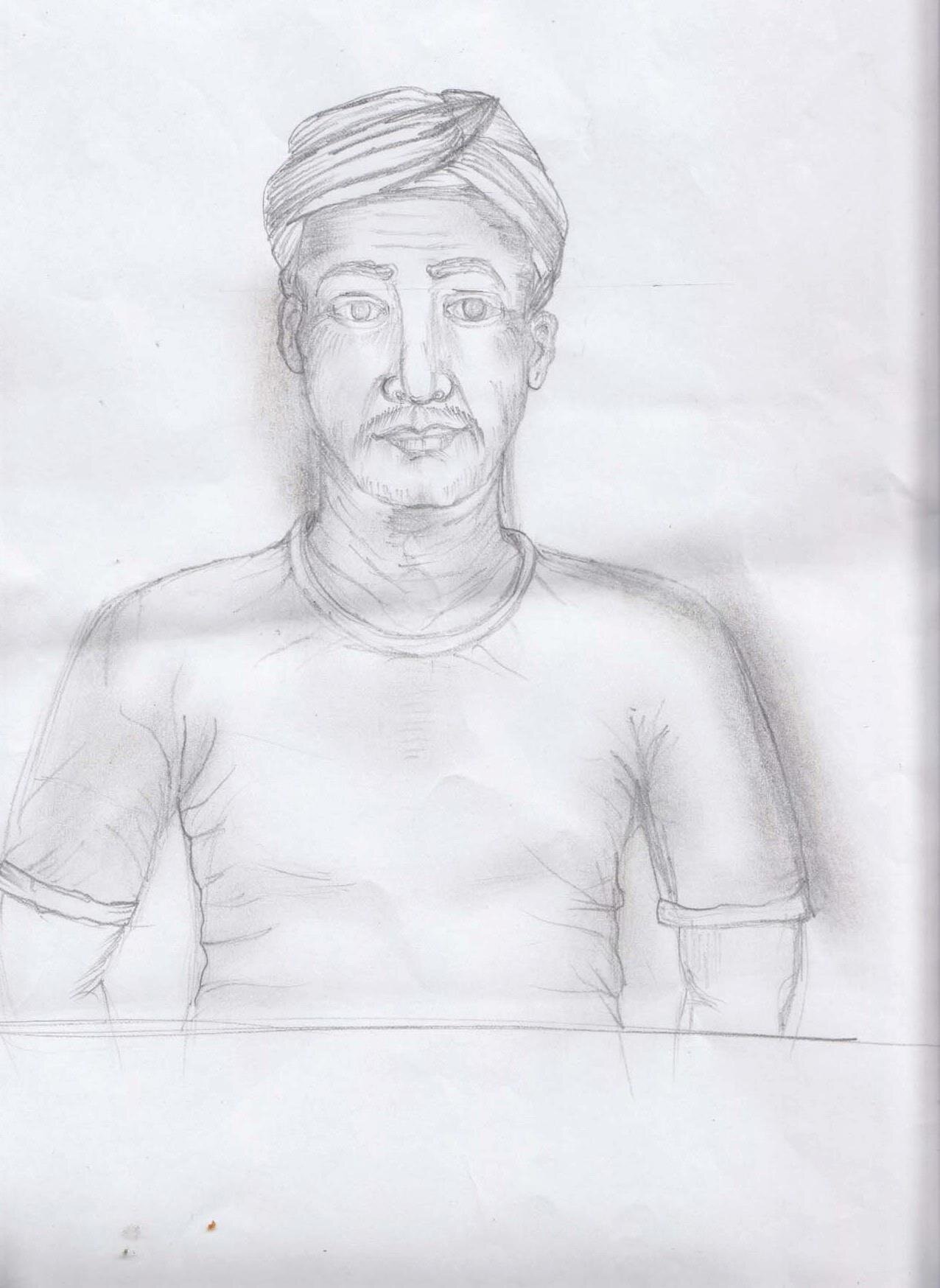
डॉ. सुमन मिश्र
वैदेही
{1}
"अहाँ सभक जलखै राखि देने छी टेबुलपर, खा लेब ! अच्छा सुनू, हमरा आइ कने विलम्ब हएत आबयमे, ठीक ?", वैदेही दुनू हाथसँ अप्पन पैघ केसके जूड़ा बनबैत बजलीह ।
राघव हफियाइत आ आँखि मिरैत बैसकी-कक्षमे प्रवेश केलाह, वैदेही दिस तकिते देरी हुनकर मोन प्रफुल्लित भऽ गेलनि । राघव कने एम्हर-ओम्हर देखिके आश्वस्त भेलथि जे पापा-मम्मी अखैनतक नहि उठल छलथि । भरि पाँज वैदेहीके पकड़ि राघव धीरेसँ बजलाह, "ठीक, तखैन हम कार्यालयसँ आबिके अहाँके पिक-अप कऽ लेब ! अहाँ टिफ़िन लेलहुँ ?"
"मम्मी-पापाकेँ आइ डॉक्टरसँ देखेबाक आवश्यक अछि, अहाँक समय भेटत तऽ आइ डॉक्टरके देखेबाक प्रयास करब ? हम बससँ आबि जाएब"- वैदेही सोचैत बजलथि। मम्मी-पापा केँ दू दिन सँ ज्वर धएने रहनि ।
विवाहक तीन मास भेल रहै आ राघवक माता-पिता पछिला हप्ता पहिल बेर घर आएल रहथि । तखैनसँ ओना तऽ सभटा ठीके चलैत छलय मुदा हुनका सभक वैदेहीक काज करब नीक नहि लगैत छलनि । सेहो आबय-जयबाक समयक ठेकान नहि । वैदेही सीनियर रिसर्च फेलो छलथि तऽ १० सँ ५ वाला रूटीनमे काज कहुना चलैत छलनि । प्रयोगशालामे मशीन सभके बुकिंग लऽ भोरे ८ बजेसँ बेस मारा-मारी होइत छल, दूटा मशीनपर लैबमे आठ गोटाक काज कोना आगू बढ़त ? एही दुआरे लैबक सभटा पीएच.डी विद्यार्थी आ पोस्ट-डॉक कर्मचारीसभ राति दस-एगारह बजे तक नियमित काज करैत रहय ।
जाबय धरि वैदेही हॉस्टलमे रहैत छलथि सभटा सम्हरि रहल छल । मुदा विवाहक पश्चात काज गड़बड़ा गेल । दुनू परिवारकेँ नीक लगैत छलनि जे कनियां बेस पढ़लि-लिखलि छथि मुदा अवार्ड सभसँ परिवारजन जतेक आनंदित होइत रहथि, ओतेक दैनिक दिनचर्यामे कोनो सहानुभूति नहि रहनि । वैदेही कहैत रहथि अप्पन माता-पिता केँ कि पीएच.डी भेलाक पश्चात विवाह करैमे बेसी सुविधा रहत, मुदा ई भयसँ जे बेटी आन बिरादरीमे कहीं विवाह नहि कऽ लिअय, माता-पिता वैदेहीक विवाह करबा देलखिन्ह ।
राघव ओना बेस नीक बर छलाह, काजक प्रति हुनकर उत्साह देखिकेँ वैदेहीक मोन आब कने निश्चिन्त भऽ रहल छलनि । मुदा राघवक गाम-समाजमे अपेक्षाक हिसाबेँ कियो वैदेहीक समर्थन नहि करैत रहनि । सासुरक लोक पहिने जोर देलकनि जे नबका घरमे एक मास कनियां एना लैपटॉप लऽके नहि बैसथु, लोक सभकेँ एहेन अशिष्टता बड्ड खराप लगैत छलनि ।
तकर बाद राघवक पिसाजीक कहब छलनि, "कनियांकेँ पीएच.डीसँ घर थोड़े चलत, हाथसँ लैपटॉप झीकू आ हँसुआ-चक्कू दिऔन, एहन-एहन पीएच.डी हम बड्ड देखनै छियै !" , तऽ दोसर अवसरपर पितियासासु कहलखिन्ह, "यै, नबका घर आएल छी, छह मास- एक साल धरि काज छोड़ि दिऔ, ई सभ तऽ लगले रहैत छैक !"
एही सभसँ यैह भेल जे विवाहक पहिने वैदेहीक जेहो उत्साह छलनि अप्पन पढाइ-लिखाइ आ शोध लऽ कए, से आब ओहेन नहि बांचल । लैबमे ओहिने बहुत प्रेशर आ तनाव छल, आब जे छुट्टी सभ लिअऽ पड़ैत छल तेहिसँ वैदेहीक बॉस खौझाइत रहैत छल, दूटा शोध-पत्रसँ नाम सेहो काटि देलक । काल्हि कहने रहनि जे तीन दिनमे काजक रिजल्ट टेबुलपर चाही । तैं आइ सांझतक काज करब आवश्यक छल, मुदा वैदेहीके पता रहैन जे आइ बॉसके प्रसन्न करै लए काज करब तऽ घरमे कोनो विवाद अवश्य आरंभ भऽ जाएत ।
वैदेही अप्पन टिफ़िन एक हाथसँ पकड़ि दोसर हाथसँ केबाड़ खोलैत लैबक लेल बिदा भेलीह, मोनमे क्रोध होइत रहनि जे स्कूटी-गाड़ी किए नहि सीखलहुँ । राघव हुनकर दिसि ताकिके तुरत्त अप्पन स्कूटी निकालि लेलथि आ वैदेहीक २०० मीटर जाइत-जाइत स्कूटी लऽके सामने आबि गेलाह ।
"पाछू बैसू वैदेही ! हम अहाँके झटसँ छोड़ि देब कॉलेज", राघव प्रेमसँ तकैत बजलाह । वैदेहीक मोनमे चलैत सभटा आबाज बिला गेल आ हुनकर चेहरापर मुस्की आबि गेलनि । एहि सभ खराप समयमे छुच्छे राघवक स्वभावसँ वैदेहीकेँ कोनो कष्ट नहि बुझाइ छलनि ।
वैदेही राघवके कसिकऽ पकड़िकऽ पाछू बैसि रहलीह आ दुनू गोटा कॉलेज लेल बिदा भेलथि । एहि समय एकटा छोटका सन स्कूटी वैदेही लेल कोनो पुष्पक विमानसँ कम नहि छल ।
{2}
लैबमे साढ़े आठ बजे ढुकैके बादो वैदेही देखलथि जे हुनकर काजक सभटा मशीन आजुक राति दस बजे तक एकटा दोसर पीएच.डी विद्यार्थी बुक कऽ लेने अछि ! वैदेहीके मोनमे परेशानी भेलनि, ई सभ लैबमे पहिनो होइत रहैत छल मुदा तखन ऐना दूरसँ नहि आबय पड़ैत छल तऽ रातिओमे सभटा काज भऽ जाइत रहै । अखन कैंपसक बाहर राति आठ-नौ बजे रस्ता एकदम सुनसान भऽ जाइत छल ।
वैदेही सोचलथिजे कनी ई दोसर विद्यार्थीसँ अनुरोध कऽके दिनुक कोनो एकटा समयके बुकिंग स्लॉट लऽ लैत छी । एक्के गोटाके भरि दिनुक काज तऽ ऐना नहि रहबाक चाही जाहिसँ बांकी सभ बैसलै रहि जाए ! वैदेही ओकरा दिसि ताकि सुस्ते बजलीह, "अहाँके पीसीआर मशीनक स्लॉट सभमेसँ हमरा सांझसँ पहिने एकटा तीन घंटाक स्लॉट दऽ दिअऽ प्लीज, आइ हमरा लेल आवश्यक अछि ।"
दोसर विद्यार्थी बिना वैदेहीक दिसि तकनै असहमतिमे मुड़ी डोला देलक ।
वैदेही सोचलथिजे एहेन स्थितिमे लैब सभमे विवाहित महिला सभ लए काज केनाइ कठिन छै, अखन तऽ बच्चा सेहो नहि अछि तखनो ई अवस्था अछि ।
हुनका मोन पड़लनि जे कोना हुनकर बॉस नियमित रूपसँ अप्पन दस बरखक बच्चा लैबमे अनैत रहथि जखन ओकर स्कूल ख़तम भए जाइत छल मुदा लैबक एकटा पोस्ट-डॉकके पछिला बरख कहने रहथि जे अप्पन नेना-भुटकाके कैंपस मए नहि आनू, लैब कोनो धर्मशाला नहि छियैक । ओ पोस्ट-डॉक वैदेही संग बैसि कानय लागल रहय जे यदि ओकर तीन बरखक बच्चाके कतो राखै के जगह नहि भेटतै तऽ घरपर रहए पड़त । आ से ठीके ओ एक मासक बाद अप्पन त्यागपत्र दऽ बिदा भऽ गेल छलीह ।
आब वैदेहीके चिंता भेल की केम्हरसँ काज निकलि सकैत अछि । दोसर तल्लापर एकटा आर लैब रहए जतऽ हुनकर काजक मशीन छल । वैदेही जेना-तेना काज अगुऔलथि । दोपहरियामे हुनकर बॉस जे एतेक दिन धरि दू मिनट ठीकसँ गप्प नहि करैत रहय से अप्पन ऑफिसमे बजा लेलक आ खूब मधुर बोलीमे कहय लागल जे जर्मनीमे एकटा पैघ कॉन्फरेंस अछि एक सप्ताह धरि, से हुनकर इच्छा छनि जे वैदेही हुनकर संग जाइथि । ई कहिके हुनकर बॉस मुस्कीक संग वैदेहीक मुँह ताकय लागल ।
"ई कॉन्फरेंस अहाँ लेल आगू बहुत काज आएत । ओना खर्चा बहुत अबैत अछि - दू लाखतक लागि सकैत अछि, यदि दिक्कत हैत तऽ अपना सभ शेयरिंग रूम लऽ सकैत छी, अहाँके स्टेजपर बजबाक अवसर भेटय ताहि लेल हम विशेष सिफारिश करब । की कहैत छी, वैदेही ?"
वैदेहीक मोन काँपि उठलनि । सभ दिन झोलंगा कपड़ा सभ पहीरि-पहीरि ओ प्रयास करथि जे बॉस आ सहकर्मी सभसँ कोनो परेशानी नहि हुअय मुदा आब हुनका अप्पन अपेक्षापर हँसी अबैत रहनि ।
ई कोनो पहिल बेरक घटना नहि रहै लैबमे, बेरा-बेरी सभ छात्रा आ महिला सभ संग हुनकर बॉस कॉन्फरेंस जेबाक चेष्टा करैत रहथि जाहिमे कोनो पुरुख विद्यार्थीके आमंत्रित नहि करैत रहथिन्ह । पहिल बेर जखन पहिल पीएच.डी छात्रा हुनकर संग गेल रहनि तऽ कॉन्फरेंसक डिनर पार्टीमे मदिराक निशांमे बॉस अप्पन छात्राके बेस निकट आबिके गप्प करय लागल । तखन एकटा दोसर प्रोफेसर आबिके हुनका दोसर ठाम बांकी प्रोफेसर सभ लग लऽ गेल आ छात्राके इशारा कऽ पुछलनि जे अहाँ ठीक छी ने? ओ छात्रा बादमे आबिके सभटा गप्प अप्पन जूनियर वैदेही कऽ कहने छल ।
"नहि, हम नहि जा पाएब अहाँक संग, हमरा अखन समय नहि भेटैत अछि ।", वैदेही बिना बेसी समय लेने जवाब देलीह, चेष्टा करैत जे हुनकर मोनमे एतेक जे डर आ कंपकपी रहनि से आवाज़मे नहि आबय । हुनकर बॉस क्रोधित भऽके बजलाह, "गेट आउट यू फ़ूल! एकर बाद देखू केना हम अहाँ के कांफ्रेंस- पोस्टडॉक लेल कतहु जाए दैत छी ! "
वैदेही ओकर बाद भरि दिन एम्हर-ओम्हर अप्पन बॉससँ नुकयलथि । सांझमे काज ख़तम होइत-होइत आठ बाजि गेल । वैदेही अप्पन बैग लऽके बिदा भेलीह हड़बड़ीमे जे कोनो बस भेटि जाए । दस मिनट बस स्टैंडपर ठाढ़ि रहलीह, हुनका देखाइत छलनि जे ओम्हरसँ जाएय-आबय बला सभ मोटरसाइकिल वला हुनका ऊपरसँ निच्चा देखैत जाइति रहनि । वैदेही मोनेमोन बजलीह, "महिला सभ लए एक-एक दिन काटब पहाड़ भऽ गेल अछि एम्हर ।"
बस भेटल तऽ महिलाक सीटपर दूटा शराबी बैसल छल, वैदेही पाछू दिसि चलि गेलीह । बसक कंडक्टर वैदेहीक ढांड़पर हाथ लगबय लागल । वैदेहीक इच्छा भेलनि जे काली बनि ओकर मुड़ी काटि ली, मुदा देहमे जेना लकबा मारि देलकनि । अप्पन घर लग बससँ उतरैत देरी वैदेही हबोढ़कार भए कानय लगलीह । एकटा महिला जे भरि जीवन सभटा कक्षा सभटा परीक्षा सभमे सभसँ बेसी नंबरसँ उत्तीर्ण करैत रहए, तेकर जीवन आ बांकी कोनो महिलाक जीवनमे कनियों अंतर नहिं । त्रेतायुगक एकटा दस-मुखी रावण जेना कलियुगमे अखन दसटा मुख सँगै-सँग दसटा देह सेहो धारण कऽ लेने रहय ।
{3}
वैदेही अप्पन नोर पोछि के घरमे प्रवेश केलथि । देखलथि जे तीनू गोटय- राघव आ सासु-ससुर चौकीपर बैसि के हुनके दिसि घृणासँ ताकि रहल छलथि। सासु तामसमे बाजय लगलीह, "आबि गेल अहाँक अर्धांगिनी केम्हरोसँ मूँह कारी कऽ के, नौ बजैत अछि, एहेन कोन काज रहैत छौ ? छिनारि कहींके!"
वैदेही मूक ठाढ़ि छलीह । किछु बजबाक ने साहस भेल ने आवश्यकता बुझाएल । वैदेहीक आँखिमे नोर जे सुखाएल छलनि से फेर डबडबा गेलनि ।
ससुरके आँखिमे सेहो क्रोध छलनि, आ तामससँ देह हिलैत छलनि । "राघव, एतेक समय कनियां घरसँ बाहर रहैत छथि, समाज थू-थू करत अहाँपर ! पुरूख छी, स्त्रीके खुंट्टामे बान्हब सीखू, बंद कराउ एकर पीएचडी !"
वैदेहीक अप्पन माथ आब बेस भारी लगैत रहैन, एहि पूरा संसारमे हुनका अखन छुच्छे राघवक समर्थनक आवश्यकता छलनि । ओ राघवक दिसि तकलथि, राघव हुनकासँ प्रेम बेस करैत छलथि मुदा अप्पन माता-पिताक सामने किछु नहि बजलथि ।
वैदेहीके लगलनि जे राघव हुनकर अझुका समस्त घाहपर नून छिड़कि देलथि !
बिनु किछु कहने, वैदेही नहाय लेल चलि गेलीह। मोनमे खौलैत पानिसँ नहाएके इच्छा छलनि । बैसकी-कक्षसँ हुनकर चरित्रपर जे गप्प भऽ रहल रहय से शॉवरके निच्चाँ सेहो सुनाइ दऽ रहल छल ।
वैदेहीक मोन समाजसँ एतेक जरल छलनि जे खौलैत पानिक ताप हुनका किछु नहि बुझैलनि । रावणक एहि संसारमे अग्नि परीक्षा आइयो सीतेक जे देबाक छलनि…
अपन मंतव्य editorial.staff.videha@zohomail.in पर पठाउ।
